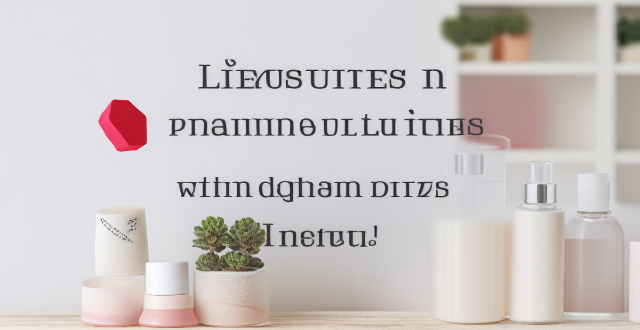The text discusses the lifespan of cosmetics and provides guidelines on when to replace them. It also gives tips on maximizing their shelf life for maintaining skin health and safety.

Title: How Often Should You Replace Your Cosmetics?
Subtitle: A Guide to Maximizing the Lifespan of Your Beauty Products
Introduction:
When it comes to cosmetics, there is no one-size-fits-all answer for how often you should replace them. The lifespan of your beauty products depends on various factors such as ingredients, packaging, and storage conditions. However, with the constant launch of new products in the market, it can be tempting to switch up your routine frequently. In this guide, we will discuss the general guidelines for replacing your cosmetics and tips on maximizing their shelf life.
Main Content:
##### General Guidelines for Replacing Cosmetics:
1. Mascara: Replace every 3-6 months to prevent bacterial growth and avoid eye infections.
2. Liquid Foundation & Concealer: Use within 12-18 months before the formula starts to separate or change color.
3. Powder-based Products (Eyeshadow, Blush): These can last up to 2 years if stored properly.
4. Lipstick & Gloss: Replace after 1-2 years, especially if they start to smell or change texture.
5. Sunscreen: It's recommended to replace sunscreen every year to ensure its effectiveness.
6. Skincare Products: Most skincare products have a shelf life of 12-24 months; check for expiration dates on the packaging.
##### Tips for Maximizing Shelf Life:
- Proper Storage: Keep your cosmetics away from direct sunlight and heat sources like windows or radiators. Store them in a cool, dry place to extend their lifespan.
- Clean Application Tools: Regularly clean brushes, sponges, and applicators to prevent bacteria buildup that can contaminate your products.
- Avoid Cross-contamination: Don't share your cosmetics with others, as this can introduce bacteria into the product.
- Use Clean Hands: Always wash your hands before applying makeup or skincare products to reduce the risk of transferring germs onto your face.
- Follow Instructions: Read the instructions provided by the manufacturer for specific guidelines on how to use and store each product.
Conclusion:
While it's essential to keep up with new launches in the cosmetic industry, it's equally important to know when to replace your existing products. By following the general guidelines mentioned above and implementing the tips for maximizing shelf life, you can make the most out of your beauty collection without compromising your skin's health or safety. Remember, quality over quantity is key when it comes to cosmetics!